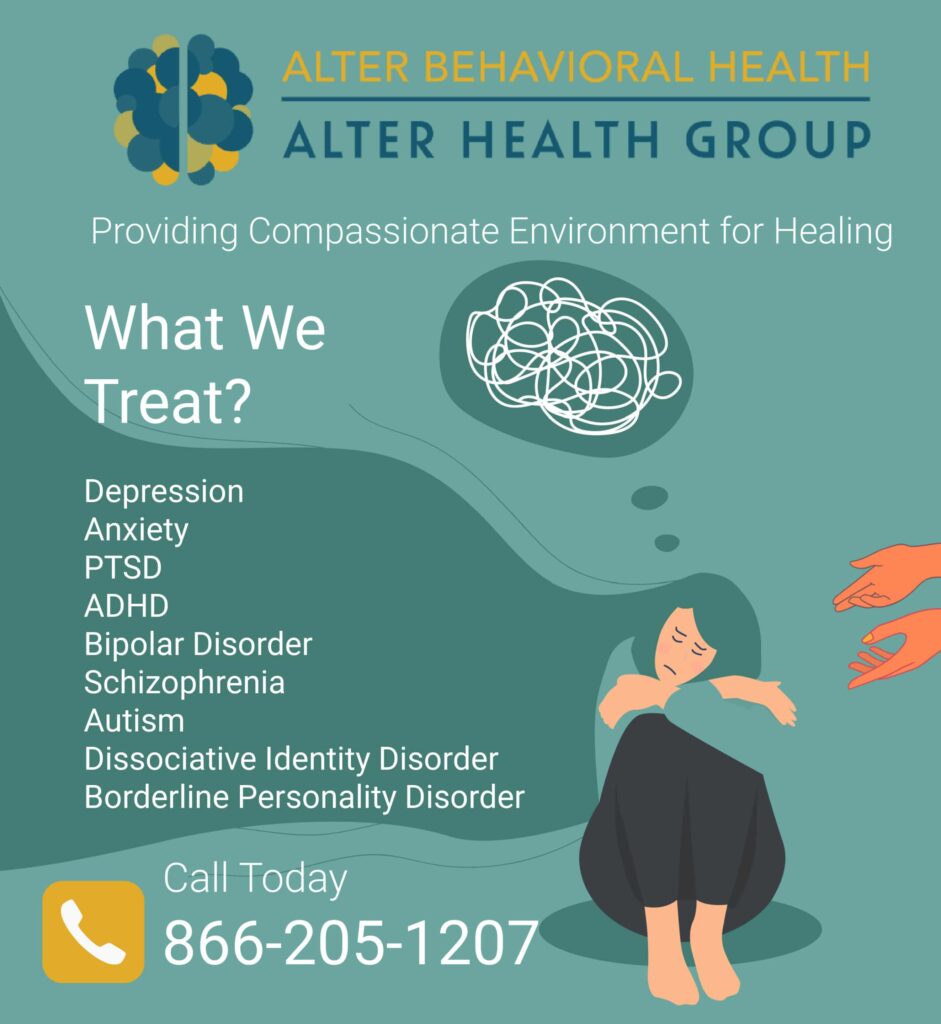Untreated ADHD can become very debilitating in adults. Approximately 2.5% of adults have ADHD. Most adults will never receive a formal diagnosis. For many, diagnosis occurs in childhood. Otherwise, many adults will struggle with untreated ADHD for their entire life. ADHD can cause issues with focus, attention span, and the ability to get tasks done.
Understanding ADHD
ADHD is a mental health condition. This condition can cause hyperactivity, impulsivity, and/or inattention. There are three main types of ADHD:
- Predominantly inattentive presentation
- Predominantly hyperactive/impulsive presentation
- Combined presentation
Each type of ADHD has a different set of symptoms that are at the forefront. Some are more focused on inattentiveness or lack of focus, whereas others are more direct in terms of hyperactivity or impulsivity. Combined type ADHD is when symptoms of both types are present.
Inattentive Presentation Signs
- Often overlooks small details or makes careless mistakes in schoolwork or at the workplace.
- Struggles to maintain concentration on tasks or activities, like during lectures, conversations, or reading for extended periods.
- Appears not to listen when spoken to, seeming mentally distant.
- Fails to follow through on instructions, leaving schoolwork, chores, or job duties unfinished (starts tasks but quickly loses focus).
- Has difficulty organizing tasks and managing time (e.g., keeps a messy workspace, struggles with deadlines).
- Avoids or dislikes activities requiring prolonged mental effort, such as writing reports or completing forms.
- Frequently misplaces important items like school papers, books, keys, wallet, phone, or glasses.
- Gets easily distracted.
- Often forgets everyday tasks, such as household chores or running errands. Older teens and adults might forget to return calls, pay bills, or attend appointments.
Hyperactivity Presentation Symptoms
- Fidgets with hands or feet, or shifts restlessly while seated.
- Has difficulty remaining seated (in classrooms or work environments).
- Runs or climbs in inappropriate settings.
- Struggles to engage in quiet or leisure activities.
- Appears constantly in motion, as if driven by a motor.
- Talks excessively.
- Interrupts by blurting out answers before questions are fully asked (e.g., finishes others’ sentences, struggles to wait their turn in conversations).
- Finds it hard to wait for their turn, such as when standing in line.
- Interrupts or intrudes on others (e.g., cutting into conversations, games, or activities, or using others’ belongings without permission).
Challenges of Untreated ADHD

Untreated ADHD can have major impacts in adults. These side effects can affect work, academic, social, and romantic life. Common challenges that come along with untreated ADHD include:
- Low self-esteem
- Trouble maintaining relationships
- Job instability
- Impulsivity with harmful behaviors
- Drug and alcohol abuse
Some of the ways that untreated ADHD can manifest in adults vary, but these can lead to the above challenges. It may be harder to spot, but common characteristics of ADHD in adults can be:
- Get distracted easily
- Misplace things
- Lose their temper quickly
- Find it hard to follow instructions
- Become irritable and inpatient
- Interrupt people while they are speaking
- Find it challenging to deal with stress
- Have mood changes
- Miss deadlines
- Be unable to sit down or stay still
These characteristics often go unnoticed, or are written off as the symptoms of something else such as depression or stress. Untreated ADHD is often overlooked in adulthood and misdiagnosed as something else because the condition is misunderstood. It’s thought that people with ADHD are unable to function regularly. However, when an individual has operated with it “as normal,” that becomes the norm for them. People with untreated ADHD are often high-functioning. This means that they internalize many of their symptoms and challenges as a coping mechanism.
Seeking Support for Untreated ADHD
Alter Behavioral Health, we strive to create an inclusive and supportive environment that is especially welcoming to neurodivergent individuals, including those with untreated ADHD and autism. Our team has extensive experience and a deep understanding of how to address these conditions, particularly when they occur alongside other mental health disorders. We recognize the unique challenges that neurodivergent individuals face and tailor our approach to meet their specific needs.

When it comes to ADHD, we begin by confirming the diagnosis and identifying the specific type of ADHD a client is experiencing. This allows us to customize a treatment plan that aligns with the client’s individual circumstances. Our approach includes a range of evidence-based therapies designed to manage untreated ADHD symptoms effectively and improve the client’s quality of life.
In addition to therapy, our medical team takes a thoughtful, collaborative approach to medication management. We work closely with each client, evaluating their unique medical history and current needs to find the most suitable medication. We believe in a personalized approach, ensuring that medication decisions are made with careful consideration to maximize benefits while minimizing side effects, helping each client achieve the best possible outcomes. Our team uses a combination of cognitive behavioral therapy and mindfulness-based therapy to reach successful outcomes. If you or someone you know is showing signs of untreated ADHD, give the Alter team a call.
About Alter
Alter is a behavioral healthcare provider that specializes in evidence-based clinical treatment approaches. We provide a wide range of programs for adults and families experiencing mental health conditions including schizophrenia, depression, borderline personality disorder, anxiety, substance abuse, and more. This is done through client-centered care for a full-continuum of treatment. We serve the entire U.S. population from our revolutionary locations throughout sunny Southern California. Whether an individual needs 24/7 care or wants an outpatient program – we are there to guide every step of the journey. For more information, give us a call at (877) 613-9776 or visit our website at alterbehavioralhealth.com.



